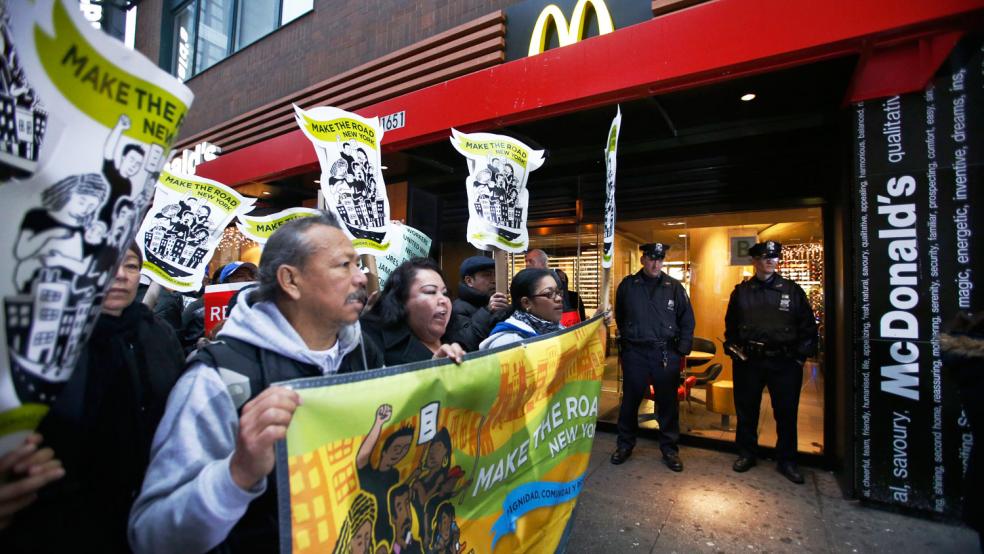One possible answer to the question above is: not much, particularly if you gauge it by the lackadaisical reaction to the strikes staged on Aug. 29. So why are fast-food workers at it again today? The answer to that question is far more definitive — more striking workers across more cities are trying to show their movement has momentum.
Backed by unions and organizations like Fast Food Forward and Fight for 15, fast-food employees plan to be out in force today, striking in 100 cities for an increase in the hourly wage to $15. This would more than double the federally mandated minimum wage of $7.25 per hour. Protests are planned for another 100 cities. When fast-food employees went on strike this past August, only half that many cities were involved.
Related: Why the Income Gap Is Widening
Doubling the area of effectiveness for your cause or organization in less than four months’ time is impressive — a sign that overall momentum might really be in your favor. But actually doubling the wage of fast-food workers nationwide is not going to be as easy a feat.
Follow the money
As you would expect, the restaurant industry doesn't think doubling the minimum wage for its workers is a good idea, and takes a dim view of the strikes to boot. In a statement posted on its website, the National Restaurant Association said, "dramatic increases in a starting wage such as those called for in these rallies will challenge" sector job growth, and that "these demonstrations are a coordinated PR campaign engineered by national labor groups where the vast majority of participants are activists and paid demonstrators."
This other NRA boasts some of the country's biggest fast-food restaurant chains as members, including McDonald's(NYSE: MCD) , Wendy's (NASDAQ: WEN), and Burger King (NYSE: BKW). In 2012 alone, the NRA spent $2.7 million on lobbying efforts according to the Center for Responsive Politics, a nonprofit and nonpartisan group that tracks political spending.
For the moment at least, strikers and their sympathizers have a not-so-secret weapon on their side: President Obama. In a speech yesterday addressing the subject of economic inequality, he reiterated his support for an increase in the minimum wage. Democratic senators have strikers' backs, too. They would like to see the federal minimum wage increased to $10.10.
Related: Why Obama Can’t Rescue the Middle Class
It's too soon to tell how the strikes are going. One early report cited about 100 protesters storming a New York City McDonald's at 6:30 a.m., blowing whistles, beating drums and chasing off at least one customer. But while it may have been easy to scare off a lone customer, don't expect the people who run the multi-billion dollar fast-food industry to scare so easily—president or no president, 50 cities or 100.
Top Reads from The Fiscal Times:
- Smart Policies Can Restore a Thriving Middle Class
- The Troubling Trend Toward Part-Time Work
- DOD’s $5 Billion Push to Stop the Next Edward Snowden





